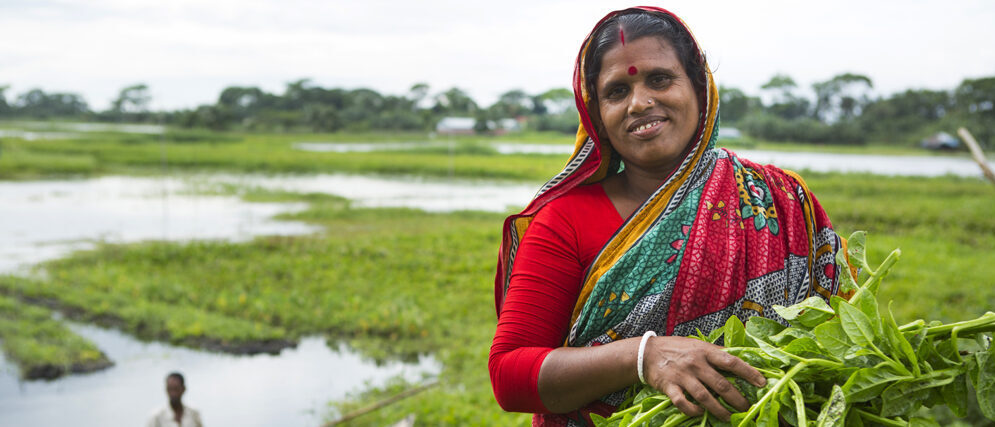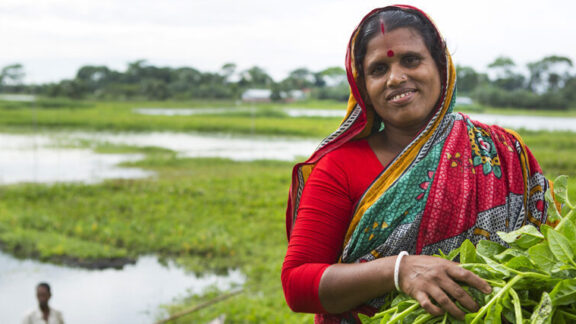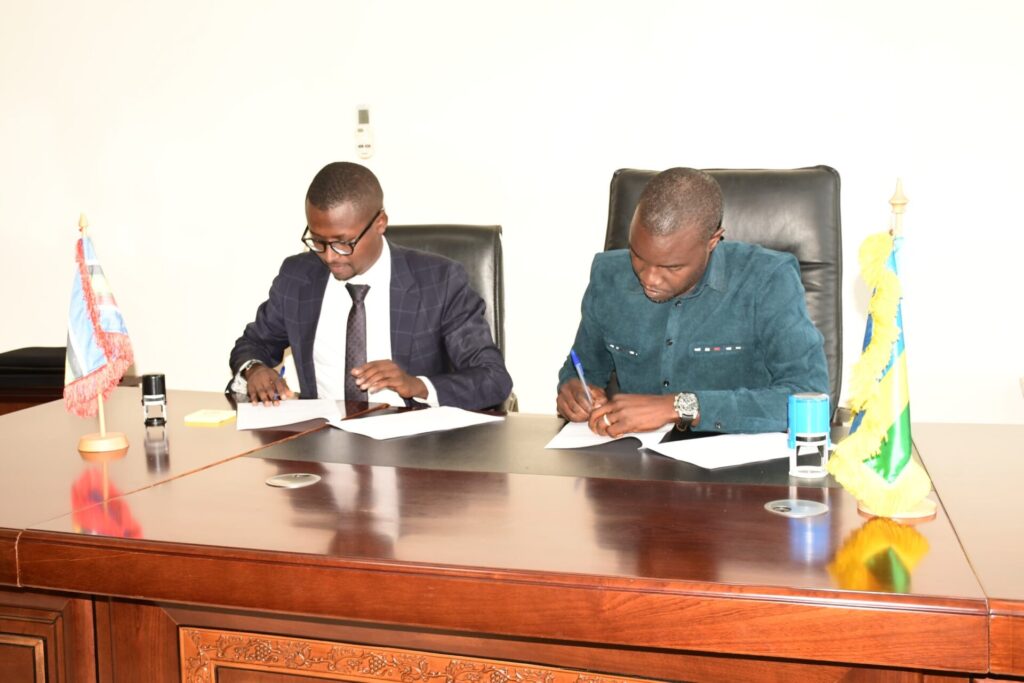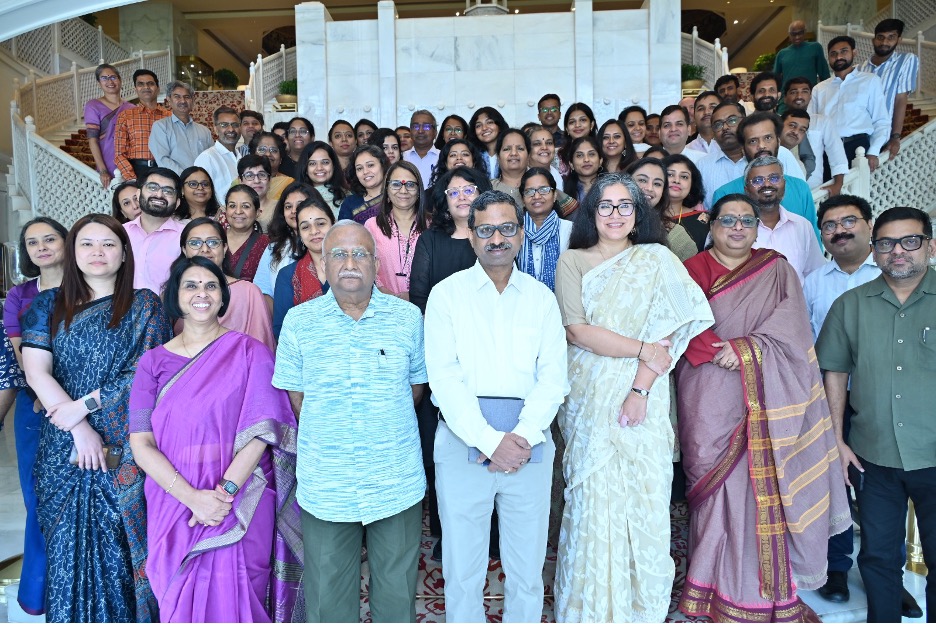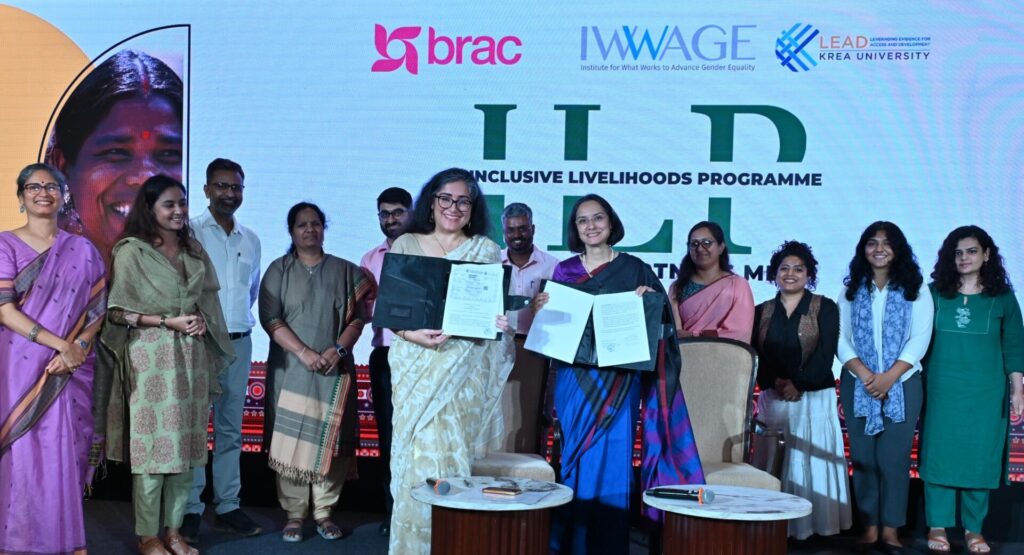By Dr. Imran Matin | Executive Director of BRAC Institute of Governance and Development & Dr. Stephanie Levy | Guest Lecturer, London School of Economics
This article originally appeared in Inter Press Service on February 14, 2022. Read it here.
DHAKA, Bangladesh, Feb 14 2022 (IPS) – With consistent, robust economic growth, countries across Asia have made monumental strides in eradicating extreme poverty over the past 30 years. In Bangladesh, for example, the population living in extreme poverty dropped from 43% in 1991 to 10.5% in 2019. Similarly in Cambodia, poverty incidence fell from 53% in 2004 to below 10% by 2016.
In these countries, economic growth has enabled governments to develop new social protection programs, expand existing ones, and make substantial investments in human capital, leading to a more equitable distribution of wealth and enabling inclusive economic growth.
However, extreme poverty persists, and progress on poverty eradication has been fragile. Many people remain highly vulnerable to income shocks and threats to their livelihood, facing the risk of falling back into poverty. Social protection systems might not efficiently address the needs of the people who are poorest because of policy designs that lead to insufficient provision of safety nets, or because they fail to identify or reach the populations they aim to serve.
New threats to livelihoods from climate change and global pandemics are adding to these policy challenges. Asian policymakers must actively address the need for effective social safety nets not only to protect their economically vulnerable populations, but also to safeguard their countries’ future economic prospects and growth.
To achieve durable gains in poverty eradication, policies need to be ambitious and creative, and efforts need to be sustained, supported by strong political will. Policymakers must adopt a long-term perspective to resilience building, and embed flexibility to respond to emergencies and new threats to livelihoods. And policies must be informed by empirical evidence on what works in the local context.
We need an in-depth understanding of what works for sustained eradication of extreme poverty in Asia, focusing on interventions that governments can implement at scale. We can gain useful insights on such interventions by bringing two streams of knowledge together: evidence from formal research and lessons from practical experiences. Social and economic inclusion interventions like BRAC’s Graduation approach, founded 20 years ago, have developed and evolved by bringing together both forms of knowledge on extreme poverty alleviation, reaching more than 2.1 million households in Bangladesh alone. This approach has combined findings from academic research with reasoned intuition and practice-based knowledge to evolve, adapt, and deliver sustained impact.
Adapted to the local context, Graduation is a multifaceted set of interventions designed to address the complex nature of extreme poverty. The approach generally includes meeting participants’ basic needs, providing training and assets for income generation, financial literacy training and savings support, and social empowerment through community engagement and life skills training—all facilitated through in-person coaching.
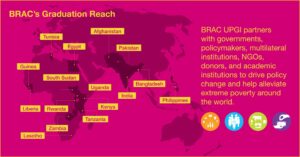
Over the past two decades, researchers have gained four key insights from this approach’s success, which policymakers can apply to strengthen efforts to alleviate extreme poverty:
First, some people in extreme poverty need a “big push” to break out of the poverty trap and stay out of this trap long after the program stops. Often, a combination of factors and constraints prevents people from escaping extreme poverty and durably improving their livelihood, a growing body of research suggests. A “big push”, or transfer of both assets and skills large enough for people to cross such thresholds, is needed to unlock the trap and stay out of poverty, finds a 2020 LSE-BIGD study. The Graduation approach provides such a push. And 93% of program participants in Bangladesh see a continued increase in income, savings, and consumption and an improvement in self-esteem five years after completing the program. A 10-year study of Bandhan’s Graduation program participants in West Bengal also found sustained improvements in consumption, food security, income, and health outcomes.
Asian countries seeking durable program impact on extreme poverty should integrate these findings into their social protection strategies, ensuring that asset transfers are large enough and complemented with enough additional training and services to break the poverty trap and enable people to stay out of it for the long term.
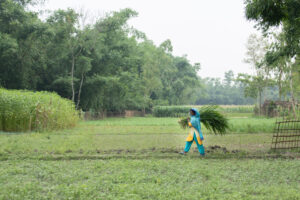
Second, “multifaceted” interventions like the Graduation approach can address the multidimensional nature of extreme poverty. Extreme poverty is not only characterized by a lack of income but also often associated with poor health, social isolation and exclusion, a lack of education and professional skills, and low subjective wellbeing. Using learnings from the Graduation approach, governments and their partners can simultaneously tackle these other dimensions of poverty and lead to behavioral changes such as improved health, sanitation, and nutritional habits. Doing so will generate synergy across different program components and amplify their impacts on livelihood.
While cash transfers can play a crucial role in meeting basic needs, as we have seen during COVID-19, evidence suggests that a more holistic approach—combining cash and other services, as the Graduation approach does—can also produce longer-lasting impacts on economic and social inclusion. A meta-analysis by CGAP and IPA, comparing 48 cash, livelihoods, and Graduation programs, found that programs that provided only cash or only livelihoods training combined with assets showed declining effects two years after the intervention. Meanwhile, Graduation interventions which combined coaching, financial and skills training, productive assets, and support for basic needs showed continued improvements in productivity and assets two years after completion.
Third, anti-poverty programs and policies need adaptive resilience-building components based on practical knowledge to prevent people from falling back into poverty. By incorporating a resilience component into programs aimed at reducing extreme poverty, Asian countries can prevent possible undoing of progress that can result from sudden economic, climate, or health shocks.
At the outbreak of the pandemic, BRAC rapidly adapted the Ultra-Poor Graduation (UPG) program, connecting program participants to emergency cash transfers, health information, and government services while adjusting to social distancing and health procedures, ultimately enabling 98% of them to avoid falling back into poverty. Insights from local staff on the livelihood, nutrition, and health challenges participants faced due to the pandemic enabled the program to respond appropriately to their constantly changing circumstances.
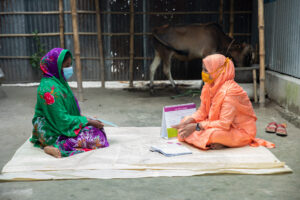
The Graduation approach also builds resilience by enabling people to move away from casual labor to diversified sources of income, in many cases from self-employment or salaried work. As a result, even after 13 years, participants who escaped the poverty trap through Graduation had more productive jobs and were less likely to lose them during the pandemic, according to a 2021 study by BIGD and LSE.
Fourth, Graduation interventions have the potential to stimulate the participant’s local economy, and if, scaled up, result in wider economic growth impacts. In Cambodia, LSE and UNDP conducted two studies on the potential impacts of the Graduation approach when integrated into the National Social Protection Strategy. A general equilibrium approach was developed to identify and trace the direct and indirect impacts on the local economy, on non-participants, and on wider economic growth. The study indicates that, through their effects on productivity, markets, and trade, Graduation interventions can simultaneously stimulate supply and demand, creating local synergies and multiplier effects that foster inclusive growth processes.
At the same level of public spending, the LSE-UNDP studies identify multiple benefits of Graduation packages relative to conventional safety net programs. Through human and physical capital accumulation, they allow participants to cover their basic needs and simultaneously engage in productive activities, generate income from self-employment, and participate in their local economy. Findings also show that both poverty and economic growth impacts are likely to last beyond the program implementation period, as the catalytic effects of productive assets and professional skills persist after programs have ended; these effects are over and above the impact of a cash-only transfer.
When developing poverty eradication interventions, governments in Asia can achieve greater long-term program impacts if they build on lessons learned from intensive practice and rigorous research. As Asian countries seek to recover from COVID-19 and build long-term resilience to future shocks, they should consider holistic interventions like the Graduation approach as investments with significant and durable returns for people who are economically vulnerable, enabling them to engage in productive activities.
Conventional safety nets will be always necessary. But, simultaneously, approaches like Graduation should be considered valuable tools to complement them and deliver sustainable impact at scale for people in extreme poverty.
Dr. Imran Matin is the Executive Director of BRAC Institute of Governance and Development (BIGD), a research and post graduate education institute at BRAC University focusing on generating high quality evidence and insights based on field research on governance and development challenges and interventions.
Stephanie Levy is a Guest Lecturer at the London School of Economics with over 15 years of experience in development and poverty reduction policies in Africa and South-East Asia and a specific focus on the local economic impact of social protection, including cash transfers and graduation packages.

